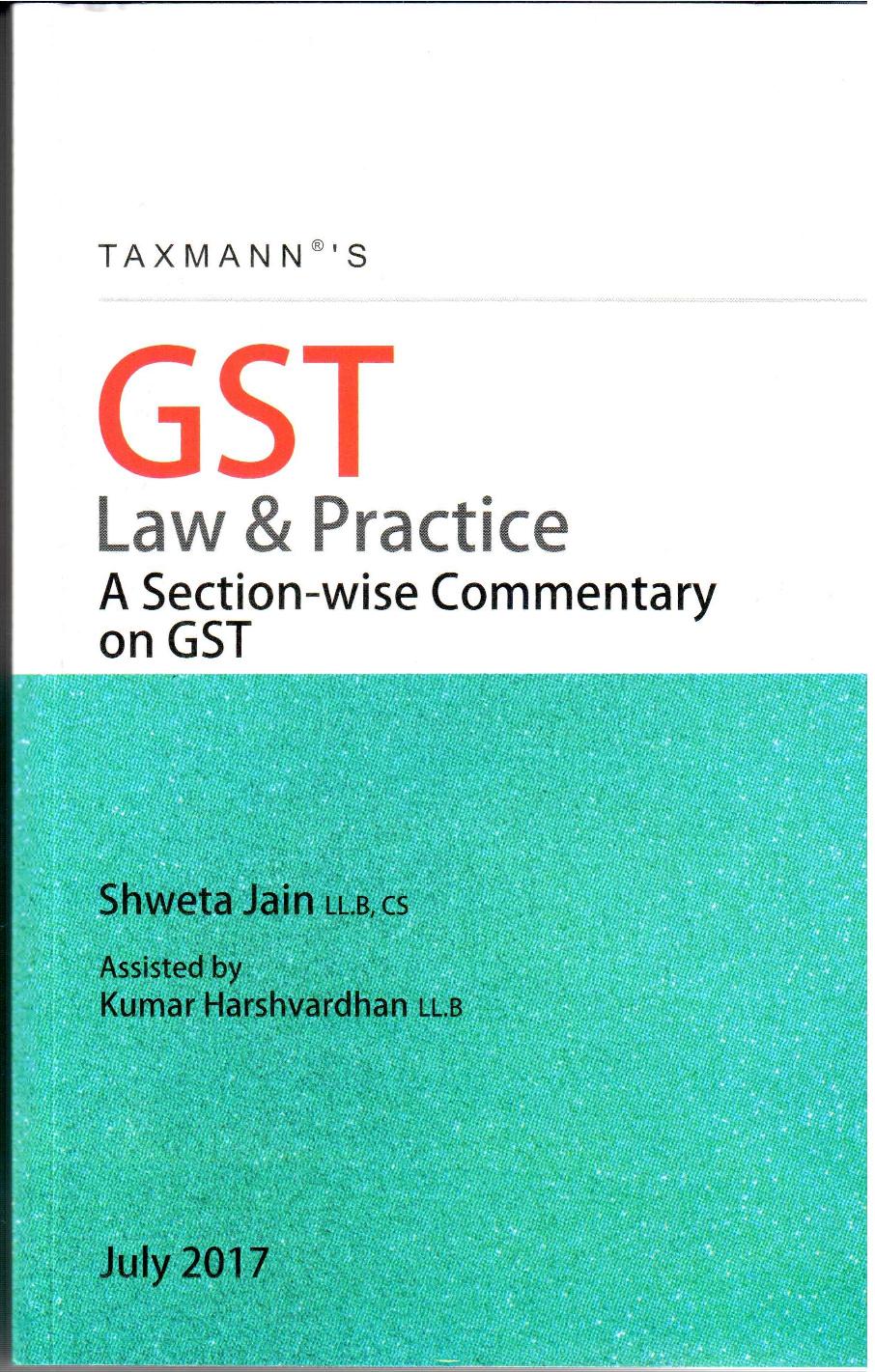GST Audit
GST Audit

GST: Law and Practice by Shweta Jain
The Goods and Services Tax has been touted to be a harmonized as well as efficient system of indirect taxation, which aims at the legislatures ceding a part of their sovereignty, in order to do away with the several layers of Central, State, and local indirect taxes that applies to a single transaction. The Government of India has replaced seventeen indirect taxes levied on goods and services by the Centre and States, by rolling out the Goods and Services Tax from July 1, 2017.
The GST law has been designed around the same concepts that have been floating around in the trade for the past two decades or so. A wider sweep, and change in taxable event has been made to align it with the unification of the erstwhile concepts. One of the most distinctive features of the book is that the rich jurisprudence laid down by the Courts and the Tribunals as regards the erstwhile law have been preserved, and categorically installed in the relevant section commentary. We hope that this will enable the readers to see the provision in the same light in which it has been interpreted by the Courts as well as Tribunals in the years gone by.
The book deals with the following:
Chapter 1: Preliminary
Chapter 2: Administration
Chapter 3: Levy and Collection of Tax
Chapter 4: Time and Value of Supply
Chapter 5: Input Tax Credit
Chapter 6: Registration
Chapter 7: Tax Invoice, Credit and Debit Notes
Chapter 8: Accounts and Records
Chapter 9: Returns
Chapter 10: Payment of Tax
Chapter 11: Refunds
Chapter 12: Assessment
Chapter 13: Audit
Chapter 14: Inspection, Search, Seizure and Arrest
Chapter 15: Demands and Recovery
Chapter 16: Liability to Pay in Certain Cases
Chapter 17: Advance Ruling
Chapter 18: Appeals and Revision
Chapter 19: Offences and Penalties
Chapter 20: Transitional Provisions
Chapter 21: Miscellaneous



